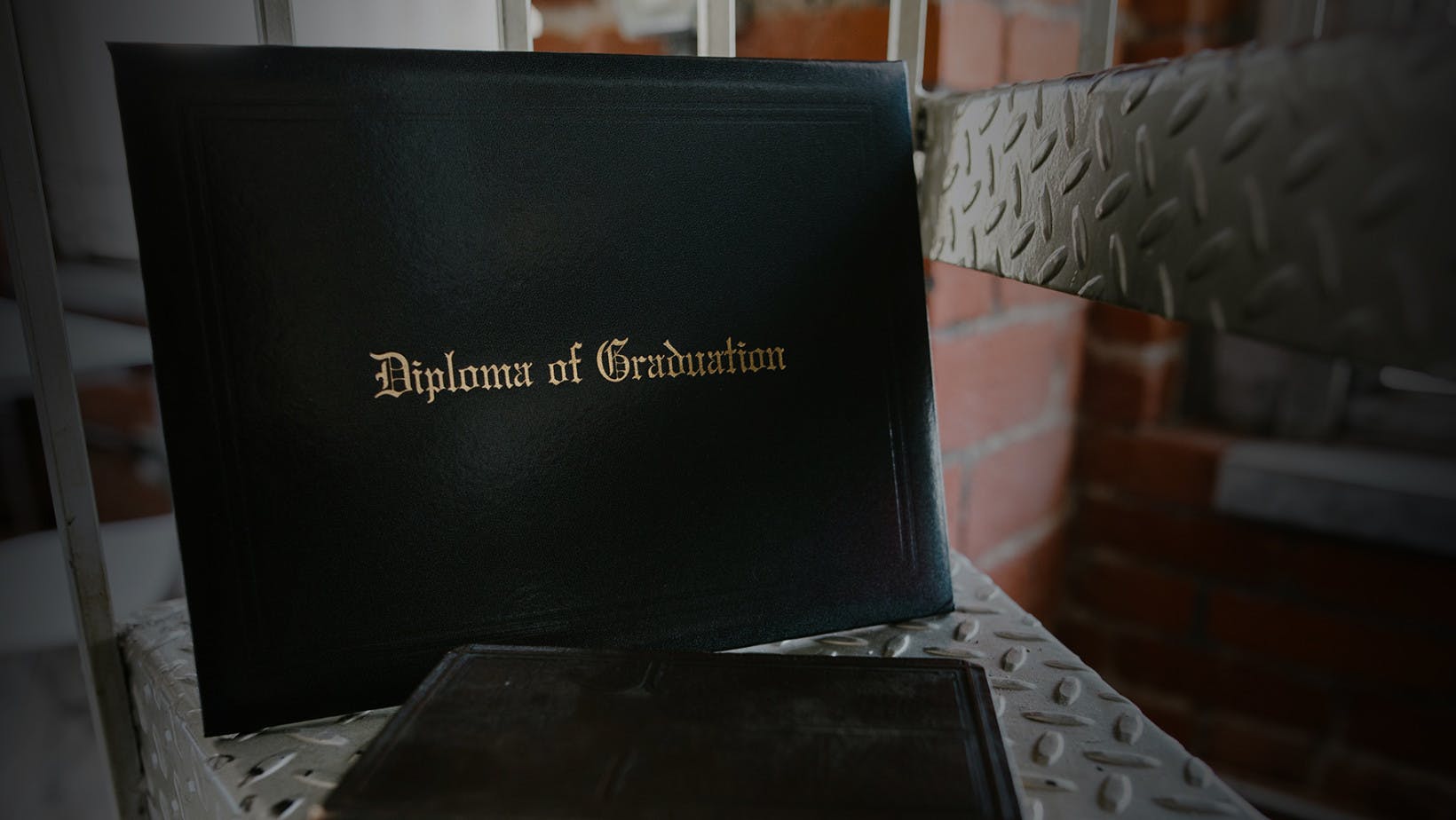In This Article
What Is a GPA?
What Is the Average GPA for College Students?
What Are the Lowest GPA Requirements for College?
Acknowledge Your GPA
6 Tips To Raise Your GPA
5 Colleges That Accept Low GPAs
Explore Online College
Your GPA is one of the most critical factors in determining if you'll get into college.
But what if your GPA isn't as high as you'd like it to be? Is it still possible to get into the school of your dreams?
The answer is yes! You can improve your chances of getting into college, even if your GPA isn't perfect.
In this article, we'll go over what a GPA is, the different requirements for admission, tips to raise a low GPA, and more.
So if you're looking to improve your chances of getting into college, read on!
What Is a GPA?
Your GPA—or grade point average—is a number that represents your average performance in all of your courses.
Your GPA is typically calculated using a 4.0 scale, where your grade for each course throughout your education gets a numerical value. The average is your overall GPA.
The 4.0 scale is as follows:
| A = 4.0 |
| B = 3.0 |
| C = 2.0 |
| D = 1.0 |
| F = 0.0 |
Having a high GPA means having a 3.5 or better—an A average—in all of your courses. Most schools consider students with a 3.0 GPA or better to have a good GPA.
Maintaining a good overall GPA is critical.
A student's GPA may affect their chances of receiving financial aid including scholarships.
Also, colleges and universities use your GPA as one of the main factors in determining acceptance. If your GPA is low, it may signal to the admissions committee that you're not ready for college-level coursework.
If you have a low GPA, don't despair! You can still stand out and improve your chances of getting into college.
What Is the Average GPA for College Students?
The average GPA for college students has been rising over the past few years. Most colleges consider a 3.0 to be the minimum GPA for admission.
The rising GPA trend is due to several factors. First, high school grades have become more inflated over time with the increase in weighted classes. Weighted classes are advanced classes such as Advanced Placement (AP), International Baccalaureate (IB), and honors courses where an A is calculated using a 5.0 on a 4.0 scale.
As the competition to get into college has increased, so has the pressure on high school students to get perfect grades in both their regular and weighted classes.
Grade inflation makes it difficult for colleges to differentiate between applicants. As a result, many colleges have raised their GPA requirements in recent years to reduce the number of applicants.
Despite the rising GPA trend, quite a few colleges accept students with lower GPAs. These schools typically look at other factors in addition to high school GPA, such as test scores, extracurricular activities, and essays. In some cases, these schools may also offer interviews as another way to assess an applicant's qualifications.
Several schools accept students with lower GPAs, and some schools don’t have a GPA requirement at all.
What Are the Lowest GPA Requirements for College?
The vast majority of colleges have a minimum GPA requirement for admission. At less selective colleges, a GPA above 2.0 can be sufficient to get in, but top universities will want to see a GPA of 3.5 or higher. Look at Ivy league schools. They have a low acceptance rate with a GPA requirement of at least 3.9.
Some colleges don't have minimum GPA requirements, and a low GPA may not necessarily stop you from gaining admission to a competitive school.
A few schools offer conditional admission to students with low GPAs. This means you may be admitted to the school on the condition that you meet certain academic requirements while you're enrolled. For example, you may be required to take certain courses or achieve a certain GPA in your first semester before you're allowed to progress to the next semester.
Once in school students usually have to maintain a certain GPA to keep their scholarships and meet graduation requirements. The minimum GPA is usually 2.0 for undergraduate students and 3.0 for graduate students, according to U.S. News & World Report.
Acknowledge Your GPA
It can be difficult to come to terms with your poor grades, but don’t lose hope. Your GPA is not the only information colleges look at when considering your college application.
College admissions officers also look at:
Personal references
Work experience
Admissions essays or personal statements
Standardized test scores (SAT scores and/or ACT scores)
Interviews
Improvement in grades on high school transcripts
Extracurricular activities
Keep these other factors in mind as you look at the application process. This additional information gives insight into who you are as a person.
A student’s GPA can be low for many reasons. If you have a low GPA, own it and recognize why it’s low. Many schools understand students are human and make mistakes. The key is being able to bounce back from setbacks and prove you have what it takes to perform well in school.
6 Tips To Raise Your GPA
1. Get Good Grades in Your Classes
Colleges will look at all your grades, not just your overall GPA. Focus on doing well in your classes, and make sure you get good grades from here on out.
Colleges like active students. Being involved in extracurricular activities shows you are well-rounded and have leadership skills.
So get involved. Find activities outside of class.
Having a part-time job while in school also shows you have a strong work ethic and looks good on college applications.
3. Take Advantage of Tutoring
If you’re struggling with a subject, seek out tutoring so you can improve your grades. Having an expert to lean on and ask questions can be a tremendous help if you have learning gaps impacting your grades.
4. Get Organized
Organization is one of the best ways to set yourself up to succeed in school. This means keeping track of your assignments, knowing when they're due, and setting aside enough time to complete them. It can also be helpful to create a regular study schedule.
5. Don't Procrastinate
Procrastination is one of the worst enemies of achieving your goals. If you're putting off studying or doing your homework, it's going to catch up with you eventually. Try to set aside some time each day to work on your studies, and don't wait until the last minute to start working on an assignment.
6. Take Care of Yourself
Your physical and mental health matter. How can you function well if you don’t take care of yourself? This means eating healthy, exercising, getting enough sleep, and taking breaks when you need them. If you're feeling stressed out or overwhelmed, campus resources are available to help you.
5 Colleges That Accept Low GPAs
Several good colleges accept students with low grades. These schools typically look at other factors for enrollment in addition to GPA, such as test scores, extracurricular activities, and essays.
Here are 5 colleges that accept low GPAs, according to U.S. News & World Report:
1. Kentucky State University
| Location | Student Body | In-State Tuition & Fees | GPA Required |
| Frankfort, KY | 2,279 | $9,190 | 2.0 |
2. Fort Hays State University
| Location | Student Body | In-State Tuition & Fees | GPA Required |
| Hays, KS | 14,104 | $5,430 | 2.0 |
3. California State University - San Bernardino
| Location | Student Body | In-State Tuition & Fees | GPA Required |
| San Bernardino, CA | 19,182 | $7,482 | 2.5 |
4. Purdue University
| Location | Student Body | In-State Tuition & Fees | GPA Required |
| West Lafayette, IN | 49,639 | $9,992 | No minimum |
5. Regis University
| Location | Student Body | In-State Tuition & Fees | GPA Required |
| Denver, CO | 5,566 | $42,220 | No minimum |
Each school has its own admissions requirements. Be sure to check the requirements of your target schools.
Some schools may require a higher GPA for certain programs. For example, Purdue University's School of Nursing requires a 2.75 GPA for admission. Review the requirements carefully, and make sure you meet all the qualifications before applying.
A few of these schools offer special programs or services for students with low GPAs. For example, Regis University offers a First-Year Experience program that helps students transition into college life and adjust to the rigors of college academics.
If you have a low GPA, research the services and programs these colleges offer to see if they're a good fit for you.
Explore Online College
Students can consider online college programs as well. One such program is Golden Gate University’s Degrees+ powered by Outlier.org.
Degrees+ has no GPA requirement and offers an associate degree in Business Administration, Applied Computing, or Liberal Studies. Students can earn an associate degree completely online and at 1/3 the cost of traditional college.
Degrees+ offers students:
The ability to move at your own pace
Engaging lessons with cinema-quality video
Dedicated support and tutoring
Multiple chances to take quizzes
Week-long exam windows
Transferable credit to most bachelor’s degree programs
Make sure to take the time to do your research when trying to find the right college for you. Having a low GPA can be a barrier, but it doesn’t mean your dreams of getting a quality education have to be over.
Choosing to take courses online or through community college first could be just the thing you need to bring your GPA up. Then you can get into the program you desire as a transfer student. By working online first, you can prove to 4-year schools that you have what it takes to be successful in college.
Degrees+: Discover Online College Unlike Anything You’ve Experienced
Outlier (winner of TIME Best Inventions 2020) and Golden Gate University (#1 school for working professionals) have redesigned the experience of earning a college degree to minimize cost and maximize outcomes. Explore a revolutionary way to earn your college degree:



